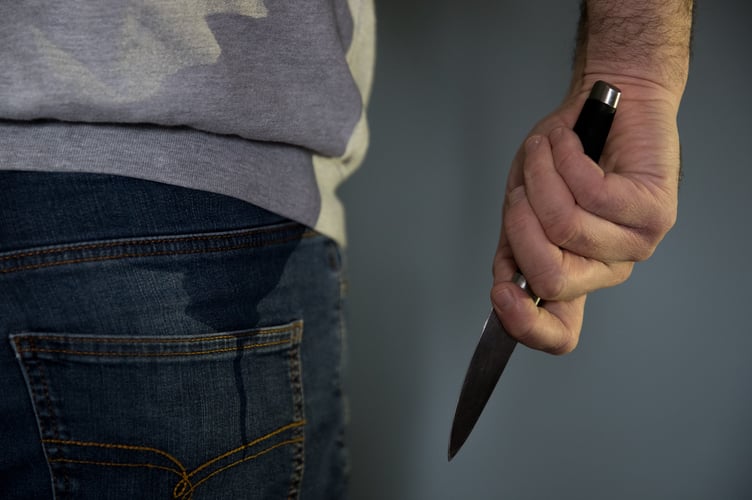Fewer knife and offensive weapon offences resulted in a caution or sentence in Surrey last year, new figures show.
Across England and Wales, this number increased by 26% over the last decade.
But the Ben Kinsella Trust, which campaigns to stop knife crime, warned of an increase in reoffending and called for "fundamental change".
Ministry of Justice figures show 165 knife and offensive weapon offences resulted in a caution or sentence in Surrey in the year to March.
It was down from 183 the previous year, but an increase from 154 a decade earlier when comparable records began.
And it means there were 15 such offences which led a caution or sentence per 100,000 people in the area, which is below the 38 per 100,000 average in England and Wales and among the lowest rates recorded in the two nations.
Meanwhile, the number of knife and offensive weapon offences dealt with by the criminal justice system has kept increasing across England and Wales.
Some 20,754 offences led to a caution or sentence in the two nations in the year to March – up 4% on the previous year, and a 26% increase over the last decade.
Of these, about 31% resulted in immediate custody, 25% in a suspended sentence, 23% in a community sentence, and 10% in a caution.
The figures also show 4,625 repeat possession of a knife or offensive weapon occasions, which imply re-offending, resulted in a sentence in the year to March.
This was up 6% from 4,348 the year before and the highest figure since records began.
Patrick Green, chief executive of the Ben Kinsella Trust, said the increase in repeat offenders is "of particular concern", and warned it "highlights a significant failure within our criminal justice system".
He said: "The current 'revolving door' dynamic, where offenders are re-engaging in criminal behaviour following their court appearances, is deeply problematic.
"The lack of enforcement of a 'two-strikes' rule undermines the severity of carrying a knife and erodes public safety.
"As a result, we are failing to provide a deterrent for criminals or provide justice for victims."
He added "fundamental change" is needed.
"We must not only hold offenders accountable but also invest heavily in rehabilitation programs that tackle the root causes of knife crime," he said.
"Only by breaking this cycle can we stop the tragic rise of knife crime."
The MoJ figures show the majority (69%) of offences which resulted in a caution or sentence in the year to March related to the possession of an article with a blade or point.
Some 14,282 such offences were recorded – up 6% on 13,492 the previous year, and the highest figure since records began in 2014-15.
Other offences included possession of an offensive weapon offences (26%) and threatening with a knife or offensive weapon offences (5%).
A Government spokesperson said: "Knife crime is a national crisis and as part of our mission to halve knife crime in a decade, we have already banned zombie-style knives and ninja swords, and are strengthening age verification for online knife sales.
"Independent judges decide sentences and they can impose a range of tough requirements including curfews, tags and exclusion zones.
"Offenders who break these requirements can be sent to prison."




